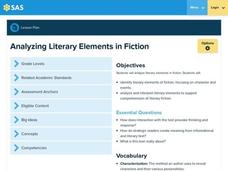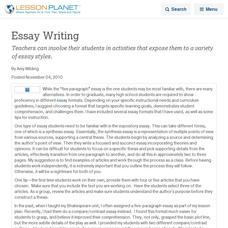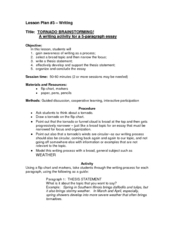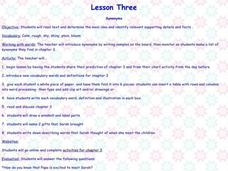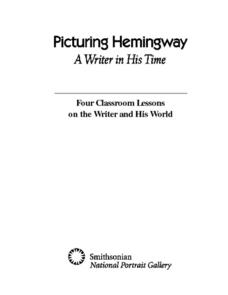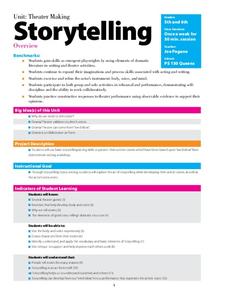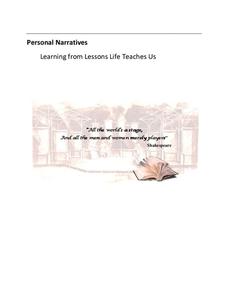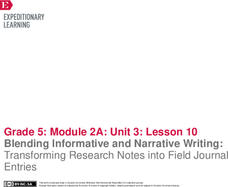C3 Teachers
Women’s Rights: What Does It Mean to Be Equal?
A guided-inquiry lesson asks seventh graders to research the compelling question, "What does it mean to be equal?" Guided by three supporting questions, researchers complete three formative performance tasks and gather evidence from...
C3 Teachers
2020 Protests: Is There Anything New about the 2020 Protests?
Are marches and protests an effective form of resistance? That is the question high schoolers seek to answer in this inquiry lesson as they compare the 2020 protests to historical ones. Researchers use Venn Diagrams to compare images...
Curated OER
Reel in Learning with Reptiles
Whether it’s all about a Jackson Chameleon or a North American Bearded Lizard, learners will be eager to embark on informational text with reptiles.
Pennsylvania Department of Education
Analyzing Literary Elements in Fiction
Students analyze the characters and events in fictional writing. In this literary elements lesson, students study the meaning of the words characterization and fiction. They listen to the story Pigsty by Mark Teague, or any other book...
Curated OER
Essay Writing
Teachers can involve their students in activities that expose them to a variety of essay styles.
Curated OER
Main Idea in Informational Text
Readers identify main ideas and supporting details using informational texts. In this literacy lesson plan, they make predictions and read the text to find the main ideas. They use a table diagram to define the main idea and supporting...
Curated OER
Tornado Brainstorming
While the focus of this instructional activity is on writing about tornadoes, any topic could be substituted. The instructional activity provides a well-thought out overview of the writing process. Learners come up with a thesis...
Curated OER
Advanced Making a Formal Argument Too Many Cooks
Give middle and high school writers an opportunity to form an opinion and use supporting details to support it. They respond to the statement "Too many cooks spoil the broth." There is an example answer provided, but I would remove it...
Curated OER
Making a Formal Argument $5 or a Lottery Ticket
What's better: having a lottery ticket or a $5 bill? This question is sure to engage your middle schoolers. There's an example answer provided and, unlike the other worksheets of its kind, there is a space to write both a rough and final...
Curated OER
Synonyms
Young scholars examine synonyms from their reading. In this synonyms lesson, students use vocabulary from their reading to create a chart and illustrate the words. Young scholars complete online activities from the story.
Curated OER
Muggie Maggie - Lesson 6
Third graders read chapter 6 of Beverly Cleary's, Muggie Maggie, and complete associated activities. In this Muggie Maggie activity, 3rd graders complete vocabulary work. They examine punctuation marks used in the chapter, and make a...
Southern Nevada Regional Professional Development Program
Focus: Writing a Brief Research Paper
If you are planning on working on a research paper in your class, take a look at this resource first. Starting off with information about plagiarism, the series of activities briefly described here should give your pupils a general idea...
Curated OER
Writing to Persuade
Students discover effective writing techniques to create persuasive essays. In this writing instructional activity, students investigate ways to express facts and points of view through persuasive essays. Finally, the students write...
Curated OER
Picturing Hemingway: A Writer in His Time
Designed to support a visit to the Smithsonian National Portrait Gallery exhibition “Picturing Hemingway: A Writer in His Time,” which ran from June 18, 1999 through January 2, 2000, the approach detailed and the activities included in...
National Endowment for the Humanities
A Defense of the Electoral College
Each presidential election year, the debate about the electoral college rages. Michael C. Maibach's "A Defense of the Electoral College" offers young political scientists an opportunity to examine a reasoned argument for why the...
New York City Department of Education
Theater Units for Lower and Upper Elementary Levels
Introduce middle schoolers to playwriting and the elements of drama with a six-session storytelling unit that encourages kids to expand their acting and writing skills. The 12-page packet includes overviews of the lessons,...
Thoughtful Education Press
Personal Narratives: Learning from Lessons Life Teaches Us
"First Appearance," Mark Twain's tale about overcoming stage fright, serves as a model of a personal narrative and gets young writers thinking about milestones in their own lives. After examining student models and considering the...
University of North Carolina
Literature (Fiction)
An informative installment of the Writing for Specific Fields series helps readers learn how to interpret and write about fiction. The website details nine easy steps for writing a literary analysis—a useful method for all readers!
K12 Reader
What Happens Next?
While your students may not be psychics, that doesn't mean they can't predict what will happen next in a story. To hone this important reading comprehension skill, young learners read a series of three short...
University of Delaware
Constructing Text-Based Arguments About Social Issues
Eighth graders take a stand on a variety of controversial topics with a lesson on argumentative writing. As they view an informative presentation and work with collaborative groups, they decide which side of each argument they want to...
Museum of Tolerance
The Pursuit of Democracy and Diversity: The Trial of Pro-Social Injustice in Historical Documents and Accounts
Class members investigate The Indian Removal Act of 1830, U.S. Theft of Mexican Territory Timeline, and President Abraham Lincoln’s letter to Horace Greeley, 1862, and then conduct a mock trial of each of these documents to determine...
Equality and Human Rights Commission
Learning area 5: Job Done!
Four activities conclude a unit through discussion and activities inspired by reflection. Scholars revisit their storybook from the first unit. Self-portraits showcase thought bubbles with written statements. Groups write and perform a...
EngageNY
Blending Informative and Narrative Writing: Transforming Research Notes into Field Journal Entries
The fabulous four. Scholars learn the four key components for creating an excellent journal entry. They then work to create a journal entry rubric and participate in a mini lesson about organizing and outlining journal entries.
Houghton Mifflin Harcourt
Heroes: Extra Support Lessons (Theme 5)
This 32-page packet, designed for the Houghton Mifflin Harcourt thematic units on heroes, provides activities and exercises for those learners who need extra support to master the basic concepts in the units.



